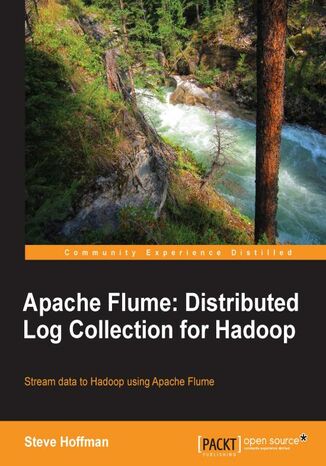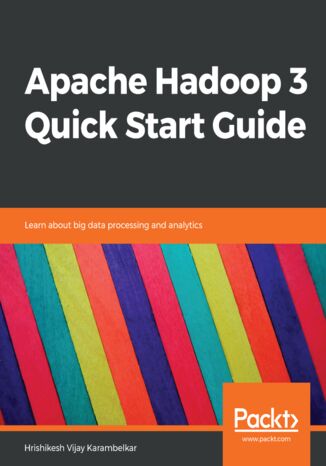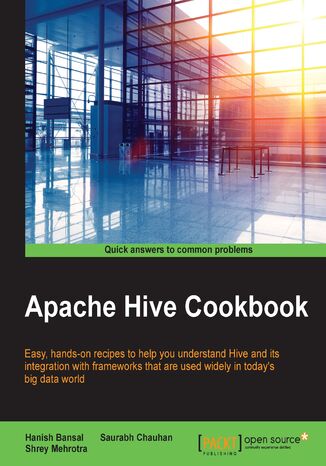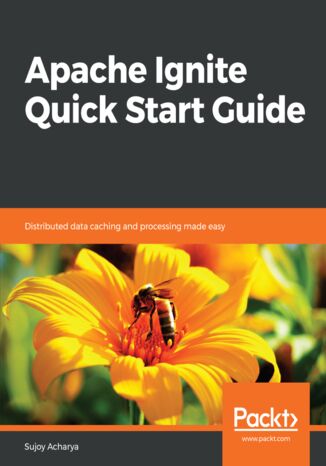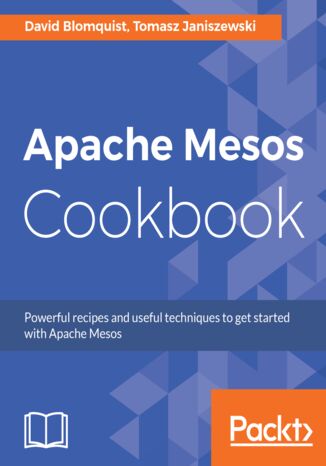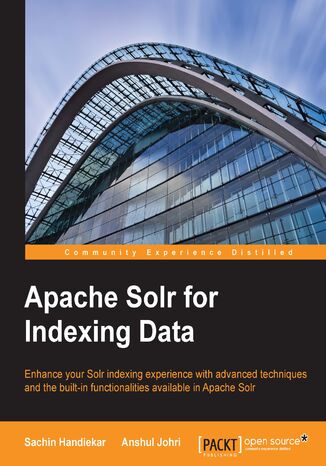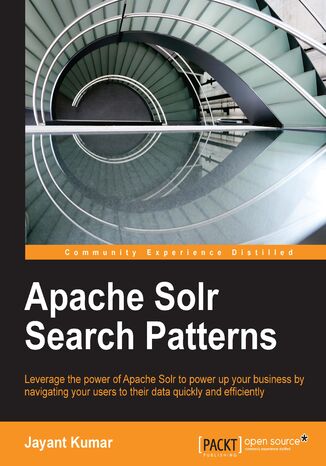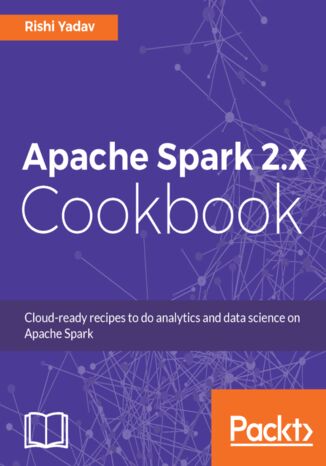Categories
Ebooks
-
Business and economy
- Bitcoin
- Businesswoman
- Coaching
- Controlling
- E-business
- Economy
- Finances
- Stocks and investments
- Personal competence
- Computer in the office
- Communication and negotiation
- Small company
- Marketing
- Motivation
- Multimedia trainings
- Real estate
- Persuasion and NLP
- Taxes
- Social policy
- Guides
- Presentations
- Leadership
- Public Relation
- Reports, analyses
- Secret
- Social Media
- Sales
- Start-up
- Your career
- Management
- Project management
- Human Resources
-
For children
-
For youth
-
Education
-
Encyclopedias, dictionaries
-
E-press
- Architektura i wnętrza
- Health and Safety
- Biznes i Ekonomia
- Home and garden
- E-business
- Ekonomia i finanse
- Esoterecism
- Finances
- Personal finance
- Business
- Photography
- Computer science
- HR & Payroll
- For women
- Computers, Excel
- Accounts
- Culture and literature
- Scientific and academic
- Environmental protection
- Opinion-forming
- Education
- Taxes
- Travelling
- Psychology
- Religion
- Agriculture
- Book and press market
- Transport and Spedition
- Healthand beauty
-
History
-
Computer science
- Office applications
- Data bases
- Bioinformatics
- IT business
- CAD/CAM
- Digital Lifestyle
- DTP
- Electronics
- Digital photography
- Computer graphics
- Games
- Hacking
- Hardware
- IT w ekonomii
- Scientific software package
- School textbooks
- Computer basics
- Programming
- Mobile programming
- Internet servers
- Computer networks
- Start-up
- Operational systems
- Artificial intelligence
- Technology for children
- Webmastering
-
Other
-
Foreign languages
-
Culture and art
-
School reading books
-
Literature
- Antology
- Ballade
- Biographies and autobiographies
- For adults
- Dramas
- Diaries, memoirs, letters
- Epic, epopee
- Essay
- Fantasy and science fiction
- Feuilletons
- Work of fiction
- Humour and satire
- Other
- Classical
- Crime fiction
- Non-fiction
- Fiction
- Mity i legendy
- Nobelists
- Novellas
- Moral
- Okultyzm i magia
- Short stories
- Memoirs
- Travelling
- Narrative poetry
- Poetry
- Politics
- Popular science
- Novel
- Historical novel
- Prose
- Adventure
- Journalism, publicism
- Reportage novels
- Romans i literatura obyczajowa
- Sensational
- Thriller, Horror
- Interviews and memoirs
-
Natural sciences
-
Social sciences
-
School textbooks
-
Popular science and academic
- Archeology
- Bibliotekoznawstwo
- Cinema studies
- Philology
- Polish philology
- Philosophy
- Finanse i bankowość
- Geography
- Economy
- Trade. World economy
- History and archeology
- History of art and architecture
- Cultural studies
- Linguistics
- Literary studies
- Logistics
- Maths
- Medicine
- Humanities
- Pedagogy
- Educational aids
- Popular science
- Other
- Psychology
- Sociology
- Theatre studies
- Theology
- Economic theories and teachings
- Transport i spedycja
- Physical education
- Zarządzanie i marketing
-
Guides
-
Game guides
-
Professional and specialist guides
-
Law
- Health and Safety
- History
- Road Code. Driving license
- Law studies
- Healthcare
- General. Compendium of knowledge
- Academic textbooks
- Other
- Construction and local law
- Civil law
- Financial law
- Economic law
- Economic and trade law
- Criminal law
- Criminal law. Criminal offenses. Criminology
- International law
- International law
- Health care law
- Educational law
- Tax law
- Labor and social security law
- Public, constitutional and administrative law
- Family and Guardianship Code
- agricultural law
- Social law, labour law
- European Union law
- Industry
- Agricultural and environmental
- Dictionaries and encyclopedia
- Public procurement
- Management
-
Tourist guides and travel
- Africa
- Albums
- Southern America
- North and Central America
- Australia, New Zealand, Oceania
- Austria
- Asia
- Balkans
- Middle East
- Bulgary
- China
- Croatia
- The Czech Republic
- Denmark
- Egipt
- Estonia
- Europe
- France
- Mountains
- Greece
- Spain
- Holand
- Iceland
- Lithuania
- Latvia
- Mapy, Plany miast, Atlasy
- Mini travel guides
- Germany
- Norway
- Active travelling
- Poland
- Portugal
- Other
- Przewodniki po hotelach i restauracjach
- Russia
- Romania
- Slovakia
- Slovenia
- Switzerland
- Sweden
- World
- Turkey
- Ukraine
- Hungary
- Great Britain
- Italy
-
Psychology
- Philosophy of life
- Kompetencje psychospołeczne
- Interpersonal communication
- Mindfulness
- General
- Persuasion and NLP
- Academic psychology
- Psychology of soul and mind
- Work psychology
- Relacje i związki
- Parenting and children psychology
- Problem solving
- Intellectual growth
- Secret
- Sexapeal
- Seduction
- Appearance and image
- Philosophy of life
-
Religion
-
Sport, fitness, diets
-
Technology and mechanics
Audiobooks
-
Business and economy
- Bitcoin
- Businesswoman
- Coaching
- Controlling
- E-business
- Economy
- Finances
- Stocks and investments
- Personal competence
- Communication and negotiation
- Small company
- Marketing
- Motivation
- Real estate
- Persuasion and NLP
- Taxes
- Social policy
- Guides
- Presentations
- Leadership
- Public Relation
- Secret
- Social Media
- Sales
- Start-up
- Your career
- Management
- Project management
- Human Resources
-
For children
-
For youth
-
Education
-
Encyclopedias, dictionaries
-
E-press
-
History
-
Computer science
-
Other
-
Foreign languages
-
Culture and art
-
School reading books
-
Literature
- Antology
- Ballade
- Biographies and autobiographies
- For adults
- Dramas
- Diaries, memoirs, letters
- Epic, epopee
- Essay
- Fantasy and science fiction
- Feuilletons
- Work of fiction
- Humour and satire
- Other
- Classical
- Crime fiction
- Non-fiction
- Fiction
- Mity i legendy
- Nobelists
- Novellas
- Moral
- Okultyzm i magia
- Short stories
- Memoirs
- Travelling
- Poetry
- Politics
- Popular science
- Novel
- Historical novel
- Prose
- Adventure
- Journalism, publicism
- Reportage novels
- Romans i literatura obyczajowa
- Sensational
- Thriller, Horror
- Interviews and memoirs
-
Natural sciences
-
Social sciences
-
Popular science and academic
-
Guides
-
Professional and specialist guides
-
Law
-
Tourist guides and travel
-
Psychology
- Philosophy of life
- Interpersonal communication
- Mindfulness
- General
- Persuasion and NLP
- Academic psychology
- Psychology of soul and mind
- Work psychology
- Relacje i związki
- Parenting and children psychology
- Problem solving
- Intellectual growth
- Secret
- Sexapeal
- Seduction
- Appearance and image
- Philosophy of life
-
Religion
-
Sport, fitness, diets
-
Technology and mechanics
Videocourses
-
Data bases
-
Big Data
-
Biznes, ekonomia i marketing
-
Cybersecurity
-
Data Science
-
DevOps
-
For children
-
Electronics
-
Graphics/Video/CAX
-
Games
-
Microsoft Office
-
Development tools
-
Programming
-
Personal growth
-
Computer networks
-
Operational systems
-
Software testing
-
Mobile devices
-
UX/UI
-
Web development
-
Management
Podcasts
- Ebooks
- Computer science
- Data bases
Data bases
Steve Hoffman, Steven Hoffman, Kevin A. McGrail
Apache Flume is a distributed, reliable, and available service for efficiently collecting, aggregating, and moving large amounts of log data. Its main goal is to deliver data from applications to Apache Hadoop's HDFS. It has a simple and flexible architecture based on streaming data flows. It is robust and fault tolerant with many failover and recovery mechanisms.Apache Flume: Distributed Log Collection for Hadoop covers problems with HDFS and streaming data/logs, and how Flume can resolve these problems. This book explains the generalized architecture of Flume, which includes moving data to/from databases, NO-SQL-ish data stores, as well as optimizing performance. This book includes real-world scenarios on Flume implementation.Apache Flume: Distributed Log Collection for Hadoop starts with an architectural overview of Flume and then discusses each component in detail. It guides you through the complete installation process and compilation of Flume.It will give you a heads-up on how to use channels and channel selectors. For each architectural component (Sources, Channels, Sinks, Channel Processors, Sink Groups, and so on) the various implementations will be covered in detail along with configuration options. You can use it to customize Flume to your specific needs. There are pointers given on writing custom implementations as well that would help you learn and implement them.By the end, you should be able to construct a series of Flume agents to transport your streaming data and logs from your systems into Hadoop in near real time.
Apache Hadoop 3 Quick Start Guide. Learn about big data processing and analytics
Apache Hadoop is a widely used distributed data platform. It enables large datasets to be efficiently processed instead of using one large computer to store and process the data. This book will get you started with the Hadoop ecosystem, and introduce you to the main technical topics, including MapReduce, YARN, and HDFS.The book begins with an overview of big data and Apache Hadoop. Then, you will set up a pseudo Hadoop development environment and a multi-node enterprise Hadoop cluster. You will see how the parallel programming paradigm, such as MapReduce, can solve many complex data processing problems.The book also covers the important aspects of the big data software development lifecycle, including quality assurance and control, performance, administration, and monitoring. You will then learn about the Hadoop ecosystem, and tools such as Kafka, Sqoop, Flume, Pig, Hive, and HBase. Finally, you will look at advanced topics, including real time streaming using Apache Storm, and data analytics using Apache Spark. By the end of the book, you will be well versed with different configurations of the Hadoop 3 cluster.
Hanish Bansal, Shrey Mehrotra, Saurabh Chauhan
Hive was developed by Facebook and later open sourced in Apache community. Hive provides SQL like interface to run queries on Big Data frameworks. Hive provides SQL like syntax also called as HiveQL that includes all SQL capabilities like analytical functions which are the need of the hour in today’s Big Data world.This book provides you easy installation steps with different types of metastores supported by Hive. This book has simple and easy to learn recipes for configuring Hive clients and services. You would also learn different Hive optimizations including Partitions and Bucketing. The book also covers the source code explanation of latest Hive version.Hive Query Language is being used by other frameworks including spark. Towards the end you will cover integration of Hive with these frameworks.
Apache Ignite Quick Start Guide. Distributed data caching and processing made easy
Apache Ignite is a distributed in-memory platform designed to scale and process large volume of data. It can be integrated with microservices as well as monolithic systems, and can be used as a scalable, highly available and performant deployment platform for microservices. This book will teach you to use Apache Ignite for building a high-performance, scalable, highly available system architecture with data integrity.The book takes you through the basics of Apache Ignite and in-memory technologies. You will learn about installation and clustering Ignite nodes, caching topologies, and various caching strategies, such as cache aside, read and write through, and write behind. Next, you will delve into detailed aspects of Ignite’s data grid: web session clustering and querying data.You will learn how to process large volumes of data using compute grid and Ignite’s map-reduce and executor service. You will learn about the memory architecture of Apache Ignite and monitoring memory and caches. You will use Ignite for complex event processing, event streaming, and the time-series predictions of opportunities and threats. Additionally, you will go through off-heap and on-heap caching, swapping, and native and Spring framework integration with Apache Ignite.By the end of this book, you will be confident with all the features of Apache Ignite 2.x that can be used to build a high-performance system architecture.
Apache Mesos Cookbook. Efficiently handle and manage tasks in a distributed environment
David Blomquist, Tomasz Janiszewski
Apache Mesos is open source cluster sharing and management software. Deploying and managing scalable applications in large-scale clustered environments can be difficult, but Apache Mesos makes it easier with efficient resource isolation and sharing across application frameworks.The goal of this book is to guide you through the practical implementation of the Mesos core along with a number of Mesos supported frameworks. You will begin by installing Mesos and then learn how to configure clusters and maintain them. You will also see how to deploy a cluster in a production environment with high availability using Zookeeper.Next, you will get to grips with using Mesos, Marathon, and Docker to build and deploy a PaaS. You will see how to schedule jobs with Chronos. We’ll demonstrate how to integrate Mesos with big data frameworks such as Spark, Hadoop, and Storm. Practical solutions backed with clear examples will also show you how to deploy elastic big data jobs. You will find out how to deploy a scalable continuous integration and delivery system on Mesos with Jenkins. Finally, you will configure and deploy a highly scalable distributed search engine with ElasticSearch.Throughout the course of this book, you will get to know tips and tricks along with best practices to follow when working with Mesos.
Anshul Johri, Sachin Handiekar
Apache Solr is a widely used, open source enterprise search server that delivers powerful indexing and searching features. These features help fetch relevant information from various sources and documentation. Solr also combines with other open source tools such as Apache Tika and Apache Nutch to provide more powerful features.This fast-paced guide starts by helping you set up Solr and get acquainted with its basic building blocks, to give you a better understanding of Solr indexing. You’ll quickly move on to indexing text and boosting the indexing time. Next, you’ll focus on basic indexing techniques, various index handlers designed to modify documents, and indexing a structured data source through Data Import Handler.Moving on, you will learn techniques to perform real-time indexing and atomic updates, as well as more advanced indexing techniques such as de-duplication. Later on, we’ll help you set up a cluster of Solr servers that combine fault tolerance and high availability. You will also gain insights into working scenarios of different aspects of Solr and how to use Solr with e-commerce data.By the end of the book, you will be competent and confident working with indexing and will have a good knowledge base to efficiently program elements.
While Apache Spark 1.x gained a lot of traction and adoption in the early years, Spark 2.x delivers notable improvements in the areas of API, schema awareness, Performance, Structured Streaming, and simplifying building blocks to build better, faster, smarter, and more accessible big data applications. This book uncovers all these features in the form of structured recipes to analyze and mature large and complex sets of data.Starting with installing and configuring Apache Spark with various cluster managers, you will learn to set up development environments. Further on, you will be introduced to working with RDDs, DataFrames and Datasets to operate on schema aware data, and real-time streaming with various sources such as Twitter Stream and Apache Kafka. You will also work through recipes on machine learning, including supervised learning, unsupervised learning & recommendation engines in Spark.Last but not least, the final few chapters delve deeper into the concepts of graph processing using GraphX, securing your implementations, cluster optimization, and troubleshooting.

